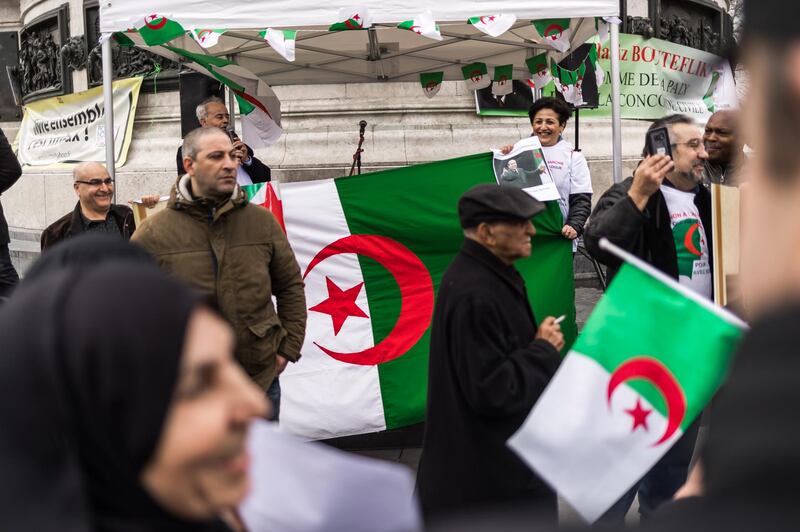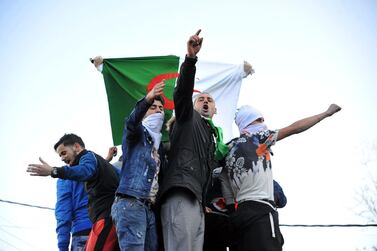Algerian President Abdelaziz Bouteflika, facing mass protests over his 20 years in power, will run in April's elections, his campaign manager said on Sunday.
But reports on Ennahar TV said he had offered to step down after a year if re-elected.
The announcement by Mr Bouteflika's spokesman Abdelghani Zaalane said the president pledged to organise an early election, reportedly within a year.
The comments are likely to be viewed as an attempt to appease those who had taken to the streets for 10 days to protest against the 82-year-old's plans to remain in office and allow him an exit on his own terms.
But hours after Mr Bouteflika's comments, new anti-government protests broke out late at night in the capital and other cities, drawing in thousands.
In a sign of a disconnect from the mostly young population, almost 70 per cent of whom are aged below 30, he communicated by letter, as he has since suffering a stroke in 2013.
Mr Zaalane submitted the documents on Sunday evening, but there was no sign of Mr Bouteflika who, Swiss television said, remained at a hospital in Geneva.
"I listened and heard the passionate call from the protesters, especially the thousands of young people," Mr Bouteflika wrote, repeating a pledge to hold a referendum on constitutional reform.
Just before Mr Bouteflika's announcement, the head of the election commission, Abdelwahab Derbal, said all candidates must submit their candidacy papers in person. If applied, that would mean Mr Bouteflika could not run.
By Sunday evening, seven candidates had registered to run against Mr Bouteflika.
Opposition groups failed to agree on one candidate, making any campaign an uphill challenge in a country dominated by one party since independence.
There was no immediate response from protesters, who had dispersed by the time the letter was published in the evening. His opponents say he is no longer fit to lead, because of his health and what they call chronic corruption and a lack of economic reforms to tackle high unemployment, which exceeds 25 per cent among people under 30.
Many Algerians eschewed public political activity for years, for fear of trouble from the pervasive security apparatus or out of disillusionment with the lack of change in the leadership.
After the decade-long insurgency Mr Bouteflika crushed early in his rule, Algerians generally tolerated a political system leaving little room for dissent as a price to pay for relative peace and stability.
Analysts say the protesters lack leadership and organisation in a country still dominated by veterans of the 1954-1962 independence war against France, including Mr Bouteflika.
But the new series of protests has been generally peaceful, apart from scuffles with police on Friday in which 183 people were injured.
Students gathered in their thousands on Sunday at university faculties, one of them near the Constitutional Council. Students chanted: "No to a fifth term!"
Thousands later marched through the city centre. A diplomatic source estimated that as many as 70,000 people had massed in Algiers, including a rally at Bab Ezzouar university, the country's biggest.
"We will not stop until we get rid of this system," said student Aicha, 23.
There were also protests in cities such as Oran, Constantine and Skikda during the day, and some cities had demonstrations at night.
About 6,000 also protested in Paris, where many Algerians live.






